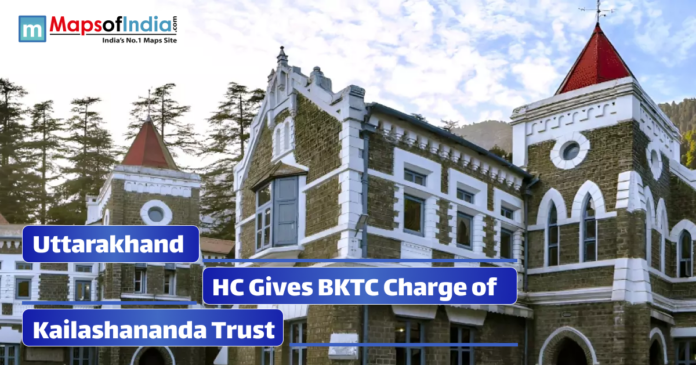On these grounds, the Badrinath-Kedarnath Temple Committee (BKTC) has been designated by the Uttarakhand High Court as the new beneficiary of the Kailashananda Trust, which is an important administrative change in the long-standing dispute over management of the trust properties and finances. The ruling follows the court noting that there is a need to have a more organized and responsible mechanism that would manage the assets of the trust until the legal process is conclusively resolved.
The BKTC will assume complete control of the management of the Kailashananda Trust, comprising temples, real estate, dharamsalas, institutional assets and financial resources as per the order of the court. The committee will keep up accounts, control revenues, staff and make sure that there is accurate documentation of the expenditure. The committee has also been advised by the High Court to exercise complete transparency on all financial transactions and report to the court on any significant transactions involving property or funds.
Rajesh Painuly, the former recipient, has been instructed to provide all the documents, accounts and administrative files to the BKTC representative immediately. The committee has, however, been accorded the mandate to incorporate Painuly in its management team in case it suspects that he may assist in continuity during the period of transition. BKTC will be assisted in the handover process by the officials in the district administration to make the transition as smooth and orderly as possible.
The ruling by the court is based on the ongoing legal tussle that has been going on concerning the ownership and management rights of the Kailashananda Trust. Claims of financial misconduct, administrative failures and legal issues had led to judicial intervention. The High Court plans to use a well-established statutory tool like the BKTC to ensure that the administration of the case is enhanced by ensuring that the case is stabilized under administrative control until the case is resolved.
Being both the controlling organization of 48 temples, of which the Badrinath and Kedarnath sacred shrines are part, the Badrinath-Kedarnath Temple Committee is thought to be a highly experienced religious administration with a well-defined institutional structure. Its chairman has embraced the court order, saying that the committee will perform its responsibilities with seriousness and responsibility, as well as making sure that the trust is still used in its religious and service to the communities.
The order of the High Court is likely to simplify the actions of the Kailashananda Trust and avoid further administrative disputes with the course of the legal procedure. Having a well-established temple management body in charge, the stakeholders are expecting more transparency in their finances, improved handling of assets and stable operations until the final verdict in the case is rendered.










